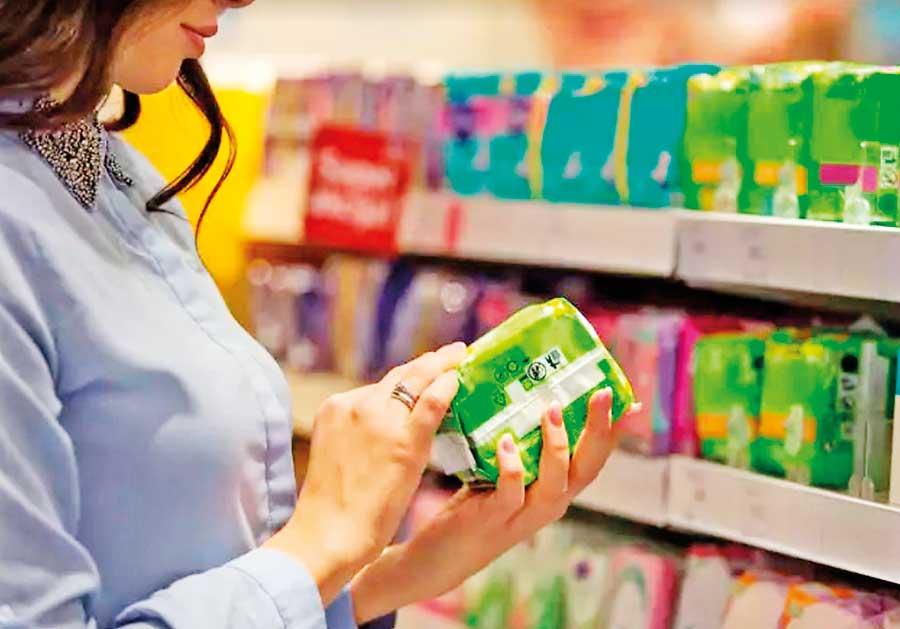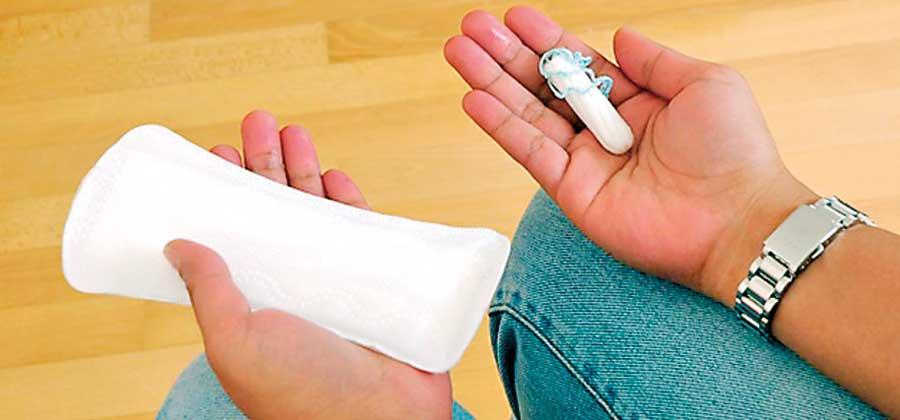Reply To:
Name - Reply Comment

Haven’t we all faced that embarrassment when we have an “accident,’’ “dirtied” our school uniforms, and used the infamous brown paper bag when buying pads in a supermarket likening women’s sanitary products to some sort of secret scandal. Why does every woman feel this inexplicable need to lie, to cover and to hide biological changes in their bodies?
infamous brown paper bag when buying pads in a supermarket likening women’s sanitary products to some sort of secret scandal. Why does every woman feel this inexplicable need to lie, to cover and to hide biological changes in their bodies?
The topic of women’s menstruation has been nothing short of controversial to say the least. Generally speaking, and mainly in the South Asian region, menstruation is often linked with shame, insecurity and fear of stigma, which is why women avoid speaking about it and refrain from purchasing sanitary napkins, due to the embarrassment and indignity they face as a result of cultural taboos in certain homes. Such cultural stigma towards menstruation has laid the groundwork for discriminatory policies in Sri Lanka.
Tax on Sanitary Napkins and Tampons
The hefty tax of 101.2% was applied on sanitary napkins in 2018, which made such products practically unaffordable to the women dominated population in Sri Lanka, classifying them as a luxury item. The question remains, are menstrual hygiene products in fact a luxury product in Sri Lanka? Where over half the world’s population needs to use menstrual products for one week each month, every month for at least 30 years, this would arguably make them an essential item.
While the import tariff on sanitary napkins and tampons was reduced to 52% in Sri Lanka in 2020, this should be compared to countries including, but not limited to: Britain, Australia, Canada, India, Malaysia, Kenya and 10 States in the USA which have abolished the tax on sanitary products, classifying it as an essential product. This has been part of a campaign to end “period poverty,” making period products accessible to anyone regardless of financial constraints. Jule Schulte, a German journalist who started the petition to reduce the sales tax on menstrual products, was asked why she thought it took so long for this change to be made in Germany on January 1, 2020, to which she replied, “The fathers of the tampon tax never had a period.” This also stands testament to the taxes on sanitary napkins in Sri Lanka which despite the removal of CESS levy, continue to remain high making them a luxury product for women.
Implications of Poor Menstrual Hygiene Management
Health Implications
Poor Menstrual Hygiene Management poses significant health risks including urogenital infections, cervical cancer and reproductive tract infections which is a result of the use of makeshift, unhygienic alternatives to menstrual hygiene products, which are not available to the masses in Sri Lanka due to the excessive levy attached to them. Women living in rural areas are significantly impacted by this due to poor sanitation and lack of water which makes washing such reusable alternatives cumbersome leading to complicated health risks.
Impact on women’s education and women in workforce
The exorbitant cost on menstrual hygiene products in Sri Lanka has a huge impact on girls’ education as girls commonly miss school during their menstruation period due to the pain, discomfort and most importantly stained clothes which is a direct implication of the inaccessibility of menstrual hygiene products which affects such women’s education. Furthermore, schools in the rural areas do not have proper toilets for women, making the disposal of sanitary napkins an issue and therefore these women consider it easier to miss school on those days in the month, rather than dealing with unclean and uncomfortable environments at school where they could face embarrassment by both teachers and fellow students if found with stains. Schools should be promoted by the State to have period-friendly toilets that include discreet waste disposal and incineration facilities for used menstrual hygiene products.
"Scotland became the first nation to make sanitary products free with their new ‘Period Products (Free Provision) Scotland Bill’. MP Monica Lennon said that the purpose of the bill was to make sure that ‘no one would have to worry about where their next tampon, pad or reusable is coming from’"
In addition to the States responsibility to provide menstrual hygiene products to women, it is the social responsibility of schools in Sri Lanka to educate girls on proper menstrual hygiene practices and the negative implications of improper and alternative unhygienic menstrual practices.
The same can be said for women in employment in Sri Lanka where absenteeism of female labourers is a direct consequence of inaccessibility to menstrual hygiene products which limits these women’s ability to achieve and work to their full potential, thus widening the present gender gap.
Way Forward
The masses in Sri Lanka appear to be enraged when the tariff on turmeric is increased, however when it comes to taxes and levies on sanitary napkins, this is overlooked. We witnessed increased local production of turmeric after the ban placed on imports of turmeric post COVID-19, which shows the resilience of our people. Why then cannot we witness production of sustainable and low-cost sanitary napkins or menstruation products in Sri Lanka, which would provide affordable female hygiene products for all women? Unfortunately, we have witnessed a rippled effect of import taxes which has allowed local producers to sell their products at high profit margins, which is the case of menstrual hygiene products in Sri Lanka. Since sanitary napkins only contribute to about 0.001% of Sri Lanka’s total exports, the argument in favour of high import tariffs to protect the local industry is entirely redundant.
It would be wise for Sri Lanka to view this problem through a Scottish lens. In November 2020, Scotland became the first nation to make sanitary products free with their new ‘Period Products (Free Provision) Scotland Bill’. MP Monica Lennon said that the purpose of the bill was to make sure that ‘no one would have to worry about where their next tampon, pad or reusable is coming from’.
"It is the social responsibility of schools in Sri Lanka to educate girls on proper menstrual hygiene practices and the negative implications of improper and alternative unhygienic menstrual practices"
Free sanitary products should be accessible to girls and women in schools, colleges, and hospitals in Sri Lankan so that the country does not incur long run health, education and labour losses. The Ministry of Education in Sri Lanka should conduct education programmes in schools to combat the stigma, not only for girls but also for boys, educating them on the normal biological phenomenon and creating awareness of menstruation hygiene. These actions could lead to men and women both advocating for clean and private bathrooms, role-modeling period positive behaviour to students, communicating care and empathy rather than shame.
Since access to healthcare is state policy in Sri Lanka which is guaranteed by the Ministry of Health, the Central and Provincial Health Ministries should ensure cost-effective provision of menstrual hygiene products as a prerequisite for women’s health in accordance with the National Policy on Healthcare Quality and Safety.
Conclusion
The tax on sanitary products goes beyond economic tariff policies; debates surrounding it are deeply rooted in gender inequality and shame surrounding issues related to women’s sexual health. Because the consequences of these taxes range from health to education to social life, they must also be tackled as a multi-faceted problem. A reduction in such tariffs would be a positive first step on the road to progress in the fight to end period poverty. Therefore, menstrual products should be federally funded and the political, cultural and biological divides prevalent in Sri Lanka should not lead to women’s needs being overshadowed and side-lined as they have been thus far.
